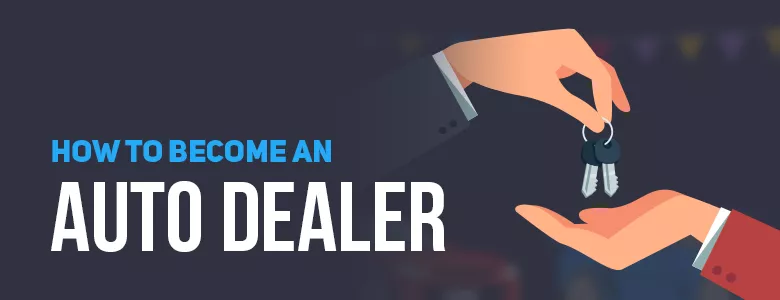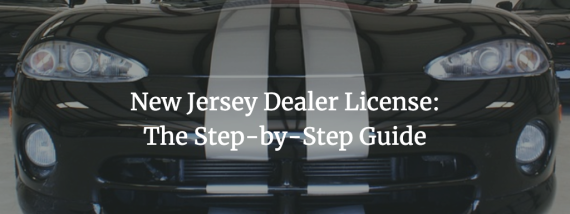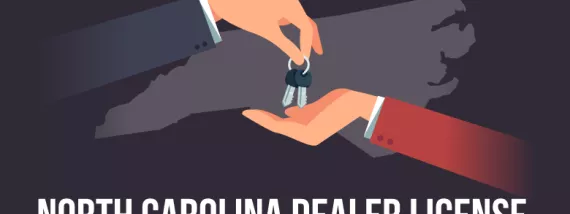How to Become an Auto Dealer

The auto industry has been one of the leading consumer goods markets in the United States for decades, and for many, the car dealer is an iconic representation of the American entrepreneurial spirit. Whilst the automotive industry suffered a blow during the financial crisis of 2008 which matched the difficulties faced in many other markets, the industry’s recovery has been dramatic and has produced ever growing sales. Subsequently, becoming an auto dealer is proving an enticing prospect for many.
Opening a dealership not only requires a good understanding of the market, but a good understanding of the application process. From obtaining an auto dealer bond, to taking out the correct insurance policies, securing finance and adhering to regulations, the journey towards opening a car dealership can seem quite daunting. With some simple preparation, however, many of these obstacles can be easily overcome, and this guide has been written to help you do so.
Why become a car dealer?
Firstly, becoming a car dealer has the potential to be a very lucrative career move. Employees throughout the dealership sector have seen their weekly earnings increasing for several years now, and they earn more than their peers than in any other part of the retail sector.
Becoming an auto dealer also offers flexibility depending on the scale of the business you wish to open. It is also a very social job, and therefore ideal for extroverted types.
What are the types of car dealerships?
The exact types of licenses available vary state by state and can differ in the abilities associated with them. For example, in some states new car dealers are permitted to sell used cars and used car dealers may sell new cars, whereas in other states specific licenses are required for each type.
However, there are several broad categories of license types, and it is useful to familiarize yourself with these before you begin the licensing process.
- New Vehicle Dealer – also known as franchised dealers in some states, these dealers sell new vehicles retail. They typically have an agreement with manufacturers who provide them with the vehicles.
- Used Vehicle Dealer – also known as independent dealers in some states, these dealers typically only sell used vehicles retail or wholesale.
- Wholesale Dealer – wholesale dealers only trade with other licensed motor vehicle dealers. They do not sell vehicles retail.
- Broker – brokers do not sell vehicles themselves but assist people to find a particular vehicle and/or arrange the purchase of the vehicle.
- Distributor – like vehicle manufacturers and wholesale dealers, distributors do not sell vehicles to the public. Such dealers usually franchise licensed dealers who then sell the vehicles retail.
- Auto Recycler – while recyclers are not vehicle dealers, they are in the business of buying vehicles which they then dismantle and sell off their parts and accessories.
How to become a car dealer
In order to become a car dealer, you must first acquire a Dealer License. Whilst individuals may sell their own cars without a business license, state law tends to set strict limits, allowing individuals to sell no more than two or three cars a year without a license.
In order to become a legal car dealer you must, therefore, have a license. To do so, you must meet the standards determined appropriate for an auto dealer by your state. These standards are known as Dealer License Requirements.
What are the dealer license requirements?
Until you are affiliated with a formally registered business, with a unique business name, you cannot progress very far with your license application. This makes business registration an essential step towards getting your auto dealer license. Whilst the precise requirements for business registration vary from state to state, some common requirements are
- Deciding on a business structure, and registering your business with the Secretary of State, or another state registration agency
- Obtaining a Registration with the Internal Revenue Service (IRS) and a tx ID from your State Department of Revenue
Once these have been obtained, and you have registered your business as a formal entity, you should begin working towards meeting the dealer licensing requirements set out by your state. Again, these requirements vary between states, but in general, they include:
- Finding a location for your dealership, and receiving some form of evidenced location approval, such as a zoning permit, from your licensing authority.
- Gaining approval from a state body that you meet required standards for your office and information display
- Passing a pre-licensing dealer training and examination
- Provide fingerprints and pass a criminal background check
- Obtain an insurance policy with a formal insurance company
- Obtain an auto dealer surety bond
- Pass an inspection of your place of business by an approved inspector
- Complete and submit your dealer license application form
- Pay application, licensing, and other fees
For more specific guidance for how to get licensed in your state, you can download our Free eBook. This contains all the basic licensing information for each state, and can be downloaded for easy, portable access.
All states require applicants for at least some dealer license types to post surety bonds. These bonds act as a guarantee that the bonded dealer will comply with state laws.
They also act as a form of protection for both the state and clients. Should a dealer be found to violate the conditions of their auto dealer bond agreement by failing to adhere to state regulation, then a claim may be filed against their bond. The bond companies will investigate their issue, and should that claim be found valid, the surety will levy funds to the value of the surety bond by way of damages, which are to be paid in turn by the dealer to the surety.
How much does it cost to get a car dealer license, and to open a car dealership?
The approximate cost of opening a dealership can vary significantly. This variation is affected by a wide number of factors.
A key factor amongst these is what kind of dealership you wish to open. Dealing with new motor vehicles, for example, is associated with significantly higher upfront costs. Equally, including a service department will increase your upfront costs. It is worth bearing in mind, however, that these upfront costs are often associated with high profits further down the line.
Several other variables to consider are whether you want to rent or buy a location, the office equipment you purchase, initial payroll expenditure, and marketing expenses.
Given the amount of diversity found within each of these options, industry experts estimate that opening a dealership can range between $10,000 and $100,000, or even higher.
There are also several necessary associated costs, such as that of registration, licensing, and obtaining your surety bond. These costs will vary based on a number of factors, such as the value of insurance, and your personal credit.
The cost of your surety bond, for example, will be a fraction of the overall bond amount, or penal sum, and is known as the surety bond premium. The first determining factor of the cost of your surety bond are the regulations laid out by your particular state. These will require that dealers of a given type post a bond worth a given amount.
Once you know the value of the bond you must obtain, you can then find out the cost of that bond. If, for example, you are required to post a bond worth $50,000, you may then ask a bonding company for a free quote. They will then make an evaluation based on your personal credit score. Applicants with the best credit scores, or with a FICO score about 675, can expect the best rates, which might fall between 1% and 3%. So an applicant with a credit score above 675 might pay between $500 and $1,500 for a $50,000 surety bond. However, this price can extend upward to $5,000 or even higher for applicants with lower scores.
Licensing fees usually cost between $100 and $300, but the exact price is determined by the state.
How to apply for a motor vehicle dealer license.
Once you have met all of the criteria laid out by your state, you may submit your application with your local branch of the Department of Motor Vehicles (DMV).
Once your application has been submitted, the DMV will organize an inspection of your business location. If the DMV are content with the quality of your application and are assured by their inspection that your premises are up to standard, you will be granted your auto dealer license, and can begin your career as a licensed seller of cars. Whilst this guide provides lots of general information, it is worth specifying how much is dependent on specific state guidelines. For state-specific guidance, please see our free eBook. Equally, if you have any further questions about how to become bonded as an auto dealership, please contact us on 877.514.5146, or send us a message via the chatbot.
- Fast and Secure Application
- Nationwide Coverage
- Approval in Minutes
- Money Back Guarantee
Recommended Articles
- Fast and Secure Application
- Nationwide Coverage
- Approval in Minutes
- Money Back Guarantee
- Image

- Image

- Image

Lance Surety Bond Associates, Inc. is a surety bond agency based out of southeastern Pennsylvania that is able to write all surety bond types in all 50 states. We are dedicated to servicing all of our customers' surety bonding needs throughout the country and guarantee competitive rates, timely responses, and unparalleled customer service.






